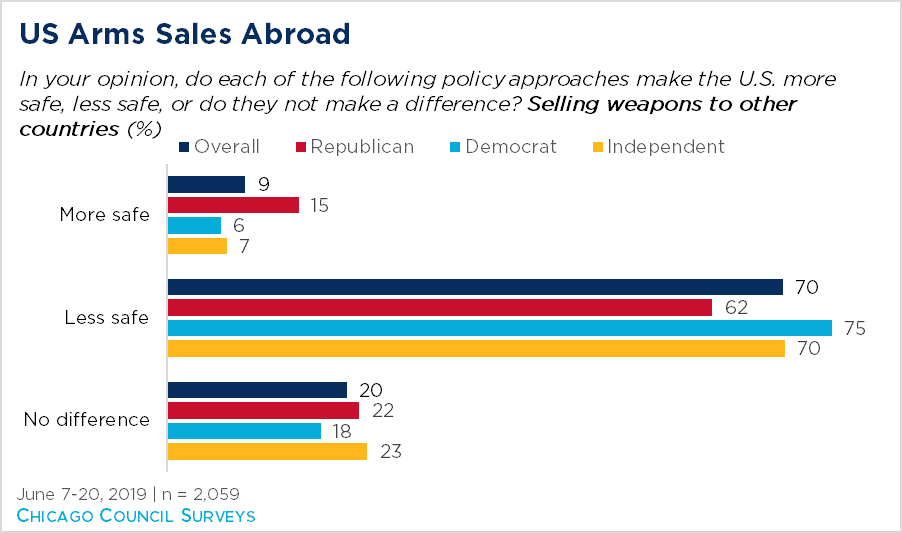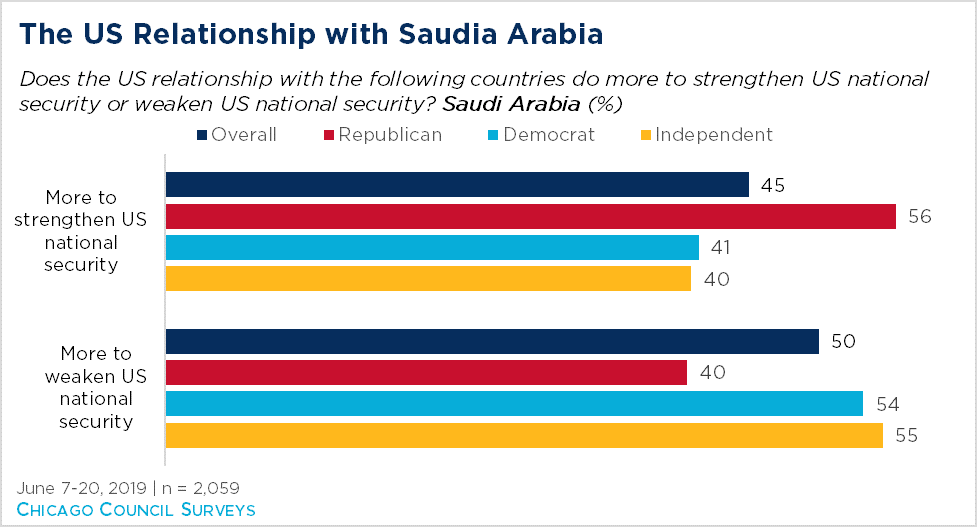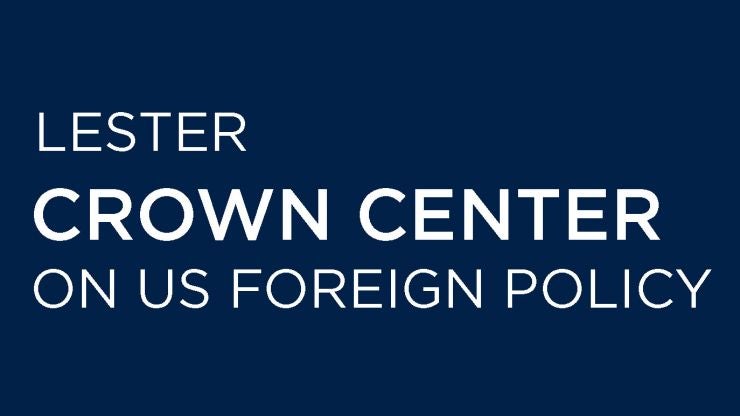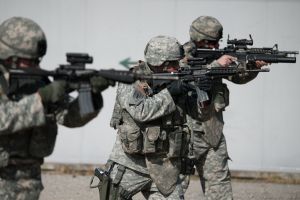Recent survey data shows that most Americans generally oppose selling weapons, but are divided on their opinion of the US' relationship with Riyadh.
As Congress weighs the decision by the Trump Administration to sell additional weapons to Saudi Arabia, a newly completed survey of US public opinion finds that most Americans oppose the US sale of weapons in general, and they are fairly divided on whether the US relationship with Riyadh makes a positive or negative contribution to US national security.
Majorities Across Party Lines Say Selling Weapons Makes US Less Safe
President Trump has long championed the sale of US weapons to foreign countries as major part of his foreign policy platform. Weapons and military equipment sales are an enormous source of income and the United States is the number one global arms trader, accounting for 36 percent of total arms exports. But a majority of Americans do not think this is a good thing.
- Seven in ten Americans (70%) believe that selling weapons to other countries makes the United States less safe, a view that cuts across partisan lines (75% Democrats, 70% Independents, and 62% Republicans).
- Overall, 20 percent say arms sales make no difference to US safety, while just 9 percent say they make the US safer.

Divisions along Party Lines on US-Saudi Relationship
Saudi Arabia has long been viewed as a valuable security partner for US grand strategy in the Middle East. As such, it has received significant military aid and equipment from the United States. However, Saudi Arabia’s involvement in the conflict in Yemen, as well as the extrajudicial killing of Washington Post journalist Jamal Khashoggi, has brought increased scrutiny to Riyadh’s ethical standards and use of American military equipment.
Overall Americans are somewhat divided on whether the US-Saudi relationship is positive or negative for US security.
- Half of Americans (50%) say that relationship does more to weaken US national security, while 45 percent say it does more to strengthen US national security.
- Republicans are more positive on the relationship, with a majority saying US-Saudi ties strengthen US security, while majorities of Democrats and Independents say the relationship weakens US security.
Other polling shows that even when Americans tend to consider the Washington-Riyadh partnership a good thing, most still believe Saudi Arabia should face penalties for its role in the Khashoggi murder.
- A 2018 Quinnipiac University poll found that 51 percent of Americans considered the US-Saudi alliance to be a good thing versus 32 percent who said it is a bad thing (18% no answer/unsure). But a full three-quarters (77%) thought Saudi Arabia should face consequences from the United States for committing the murder.
- A 2018 CNN poll similarly found that 58 percent of Americans believed the US response to the Saudi role in the Khashoggi killing was not tough enough (22% about right, 2% too tough).

Methodology
The analysis in this report is based on data from the 2019 Chicago Council Survey of the American public on foreign policy, a project of the Lester Crown Center on US Foreign Policy. The 2019 Chicago Council Survey was conducted June 7-20, 2019 by IPSOS using their large-scale nationwide online research panel, KnowledgePanel, among a weighted national sample of 2,059 adults, 18 years of age or older, living in all 50 US states and the District of Columbia. The margin of sampling error for the full sample is ±2.3, including a design effect of 1.1607. The margin of error is higher for partisan subgroups or for partial-sample items.
Partisan identification is based on respondents' answer to a standard partisan self-identification question: “Generally speaking, do you think of yourself as a Republican, a Democrat, an Independent, or what?”










